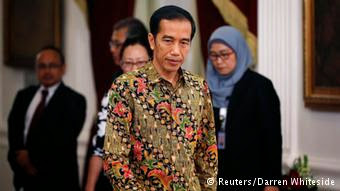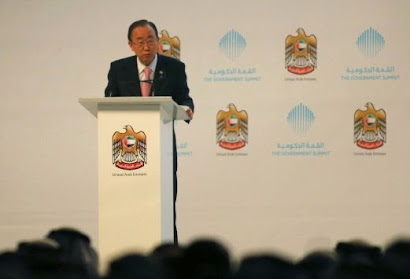Jakarta Globe – AFP, Jun 29, 2014
Jakarta. Muslims in much of Asia began celebrating the holy month of Ramadan on Sunday but in Indonesia even threats by hardliners to raid “sinful” bars could not stop football fans heading to nightspots to watch the World Cup.
 |
| Muslims attend an evening mass prayer session called ‘tarawih’ to mark the holy fasting month of Ramadan in the Al Akbar Mosque in Surabaya, East Java on June 28, 2014. (Reuters Photo/Sigit Pamungkas) |
Jakarta. Muslims in much of Asia began celebrating the holy month of Ramadan on Sunday but in Indonesia even threats by hardliners to raid “sinful” bars could not stop football fans heading to nightspots to watch the World Cup.
Across the
Muslim world, the faithful fast from dawn to dusk and strive to be more pious
during the holy month, which ends with the Idul Fitri holiday.
Ramadan got
under way in Asian countries including Indonesia, which has the world’s biggest
Muslim population at around 225 million people, war-torn Afghanistan, Malaysia,
Sri Lanka and the Philippines.
Hardliners
in Indonesia have pledged to raid bars that continue to sell alcohol, which
Muslims are banned from drinking under Islamic law, or stay open too late.
Authorities order bars and other nightspots to close earlier during the holy
month.
Radical
group the Islamic Defenders’ Front would “monitor any sinful activities in
entertainment places, cafes and bars during Ramadan”, said Salim Alatas, the
group’s chief in the capital Jakarta.
“If law
enforcement officials do nothing about immoral activities, we will do anything
we can to stop them, using our own methods.”
But the
threats did little to deter people in the football-crazy nation, where most
practice a moderate form of Islam, from heading out to catch the latest World
Cup action.
Bars that
remained open in the Jakarta were packed with locals and expatriates late
Saturday and early Sunday.
“For me,
the fasting does not really affect my enthusiasm to watch the World Cup,” said
Intania Permata, a 22-year-old student, who was watching the Brazil versus
Chile nail-biter at a South American bar and restaurant.
Endika
Setiadi Putra, 27, said that with the World Cup now in the knockout stages, the
excitement would keep drawing people to watch the matches in bars even during
Islam’s holiest month.
“If it is
the weekends, most people will go out [to watch the matches],” Putra told AFP.
Diet
dilemma for footballers
The holy
season also presents a dilemma for Muslim players in the World Cup, as choosing
to fast will affect the strict diets they usually have to follow.
The problem
is most pressing for the team from Muslim-majority Algeria, who face a tough
match against Germany on Monday.
For many
other Indonesians, the start of Ramadan was a time to be with their families or
take part in special prayers, with thousands heading to Jakarta’s Istiqlal
Mosque, the biggest in Southeast Asia, on Saturday evening.
Politics
was in focus in war-torn Afghanistan, with conversation at “iftar” meals after
sunset expected to focus on the disputed vote count from the country’s presidential
election.
Results are
due out during the holy month, but Abdullah Abdullah has cried foul in the race
against Ashraf Ghani, alleging massive fraud. The inauguration of the new
president is scheduled for August 2, shortly after Ramadan finishes.
Sri Lanka’s
Muslims, who account for about 10 percent of the country’s 20 million
population of mainly Buddhists, are set to observe a low-key Ramadan after a
spate of recent religious attacks.
The Muslim
Council of Sri Lanka, which groups nearly 50 Muslim organizations, said
authorities had promised tighter security but many were still afraid of
Buddhist extremist attacks after four people were killed in religious riots
this month.
In the
predominantly Catholic Philippines, the country’s Muslim minority was observing
its first Ramadan since the signing of a peace deal between the government and
the largest Islamic rebel group after decades of conflict.
Von Al-Haq,
military spokesman of the Moro Islamic Liberation Front, said the former rebels
would seek to use the holy month to try to persuade breakaway groups still
fighting the government to lay down their arms.
Ramadan
begins when the first crescent of a new moon is sighted. The holy month was
also starting across the Middle East, as bloody conflicts rage in Iraq and
Syria.























